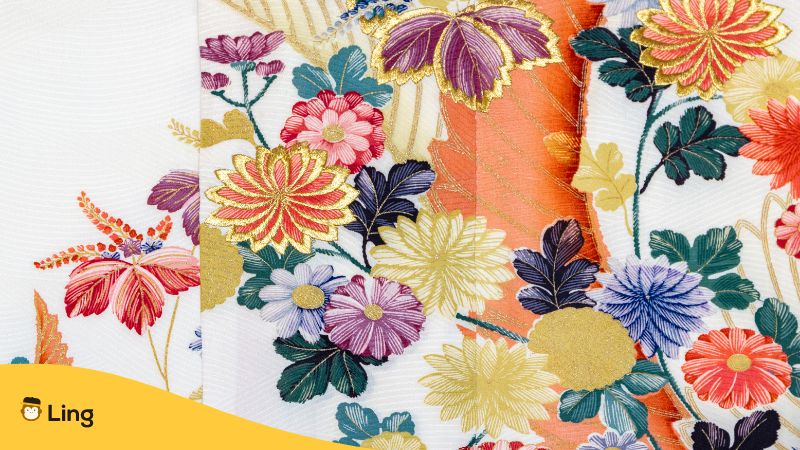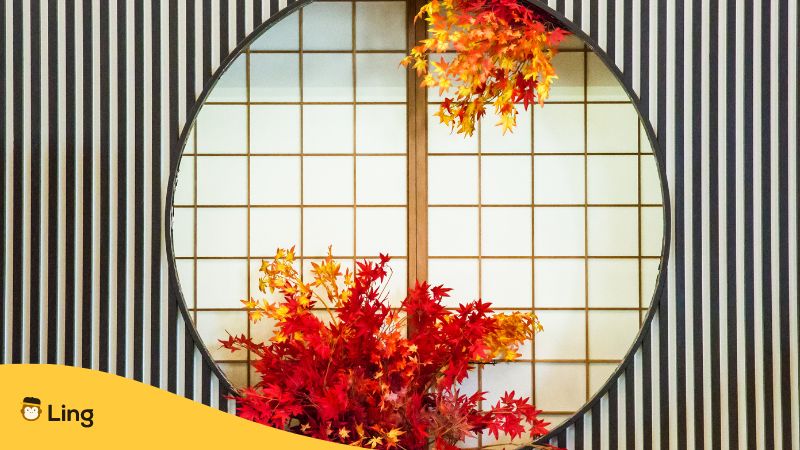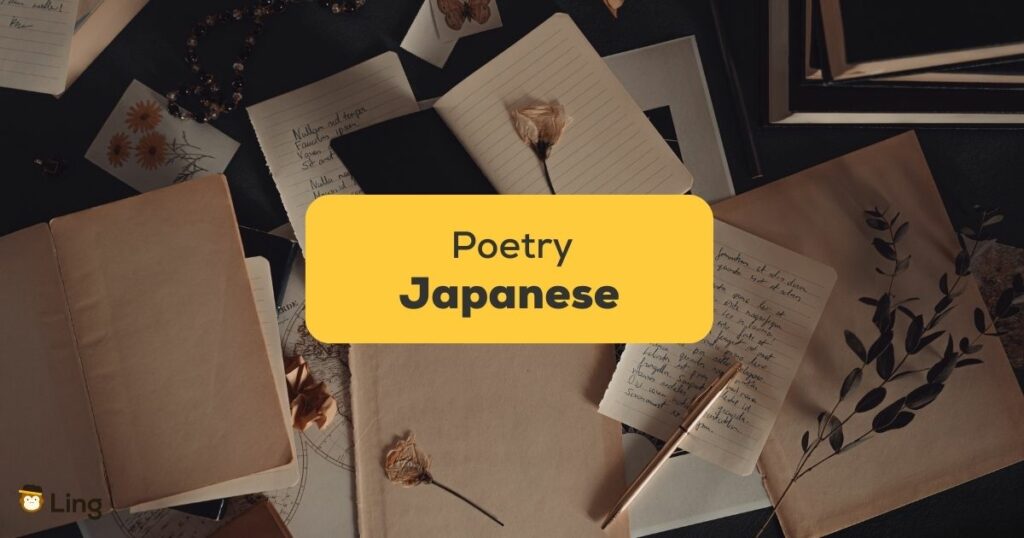Japanese poetry is a marvelous and artistic way of delivering and transforming emotions into words—something that can be received by our senses, making the abstract (our emotions) visible. Have you ever received a poem? Or perhaps you have tried to write one. In either case, it is only proof that poetry written with passion is something to be treasured.
Japanese poems stand as a testament to the beauty and elegance that can be conveyed within a few simple lines. Rooted in a rich cultural heritage, Japanese poetry encompasses various forms that have evolved over centuries. Each form of Japanese poem captures a unique facet of life’s experiences.
Why Are They Significant?
Japanese poetry is like a spectrum of feelings and culture that’s impossible to ignore! From ancient times, it’s been a megaphone for human emotions, starting with screams and tears that turned into heartwarming songs for special moments. Yes, they have different types of poems for each situation!
Japanese folks believe in crafting life as a work of art, and their poetry is the paintbrush. Imagine, just a few words can hold centuries of wisdom, and this is true not just for the Japanese, but for the whole world!
Japanese Poetry Forms

Haiku: Embracing Nature’s Essence In Seventeen Syllables
Imagine squeezing a whole world of feelings into just 17 little syllables—that’s haiku magic, one of the forms of traditional Japanese poetry. Haiku poems have three lines: first 5 syllables, then 7, and a snazzy 5 to wrap it up. Way back, when fancy poems were getting a bit too serious, haiku burst onto the scene.
The name “haiku” is a blend of “haikai” (a fun type of poem) and “hokku” (the grand entrance of another poem). So, haiku is like a poetic snapshot that makes you go “whoa” and “hmm” all at once. And guess what? It’s a world traveler, speaking the language of poetry all around the globe!
Tanka: A Dance Of Emotions In Five Lines
It’s like a poetic high-five in 31 syllables! Imagine expressing big emotions in just five lines—that’s the tanka vibe. It’s been a star player in Japanese literature for ages, kind of like the Michael Jackson of traditional poetry. Tanka’s like a verbal dance with a 5-7-5-7-7 rhythm, making words groove in style.
Back in the day, it was all the rage at the fancy Japanese Imperial Court, and even Cupid loved it for courtship! Imagine a poetic text message that’s both sweet and succinct. From Lady Akazone Emon to modern tanka circles, it’s a timeless way to share feelings and keep the poetry party going!
Renga: Collaborative Poetic Symphony
Imagine a bunch of poets passing a poetic ball back and forth, creating something amazing together. Renga (one of the classic Japanese poetic forms) is like a poetic relay race where each poet takes turns crafting lines. It’s a 700-year-old tradition that started in Japan to get people mingling their creative vibes. Picture this: alternating haiku and couplets, each stanza having its own style. It’s like a poetic jam session where syllables groove to a 5-7-5 and 7-7 rhythm.
Renga’s history is as colorful as a rainbow—from ancient times to the swanky Azuchi-Momoyama era, it’s been a poetry hit. And here’s the cool part: it’s not just about making poems; it’s about making them together. So, next time you’re up for a poetic team effort, remember renga – where creativity gets a group hug!

Haibun: Weaving Prose And Verse
Let’s dive into the awesome world of “haibun“: a poetic sandwich of prose and haiku! Imagine blending two flavors—a tasty prose poem and a zesty haiku—into a single masterpiece. This cool combo originated in Japan and got its name from one of the most famous Japanese poets Matsuo Bashō, who was basically the trendsetter of the 17th century. Picture this: the prose part paints a scene like a regular story, while the haiku swoops in with a surprise twist.
It’s a creative tag team that can cover anything from travel tales to personal reflections. And guess what? Haibun is like a canvas waiting for poets to splash their imagination on it. From traditional to modern, it’s a poetry party where prose and haiku come together for a high-five of creativity!
Senryu: Wit And Humor In Short Verse
Senryu is like a poetic wink at life’s quirks. While haiku chats with nature, senryu is all about poking fun at us humans and our little quirks. It’s named after Karai Hachiemon, a poetic trailblazer from way back when. Picture this: no cutting words, no nature hints—just pure poetic playfulness. If you’re giggling at a clever twist on human nature, you’ve probably stumbled upon senryu’s snappy brilliance. So, whether it’s a chuckle or a full-on belly laugh, senryu is your poetic partner in comedy crime!
Kyoka: Satirical Take On Traditional
Kyoka is like a tanka’s mischievous and funny cousin! Imagine a five-line poem doing a jig with syllables: a groovy 5-7-5-7-7 rhythm that’s all about having a good time. Kyoka is like the ultimate party crasher of poetry, bursting onto the scene in the 15th century, jazzing up the Edo period.
Think of it as a tanka with a twist—it’s got a hilarious side packed with jokes, irony, and social sass, all wrapped up in just 31 syllables. And guess what? Kyoka isn’t just about giggles; it’s a master of all emotions, ready to tug at your heartstrings or tickle your funny bone. So, whether you’re in the mood for a chuckle or a heartfelt moment, kyoka is the poetic pal that knows how to keep the good times rolling, even today!
Modern Japanese Poetry – Today And Beyond!
Modern Japanese poetry, a national-level appreciated art, is recognized for being innovative and experimental while using traditional styles. From today up until the future, Japanese poetry will continue to be an expression of emotions in the form of art. Art is ever-evolving; it is ingrained in the development of the world and its people!
Level Up Your Japanese Poetry With Ling!
There is nothing better than learning to practice an art in its local form! That is why learning the Japanese language is surely an upgrade. And there is no better companion than Ling, as it has gamified lessons, quizzes, and native speaker audio to drastically improve your learning! Ready to try? Download Ling today on Play Store or App Store!


































































